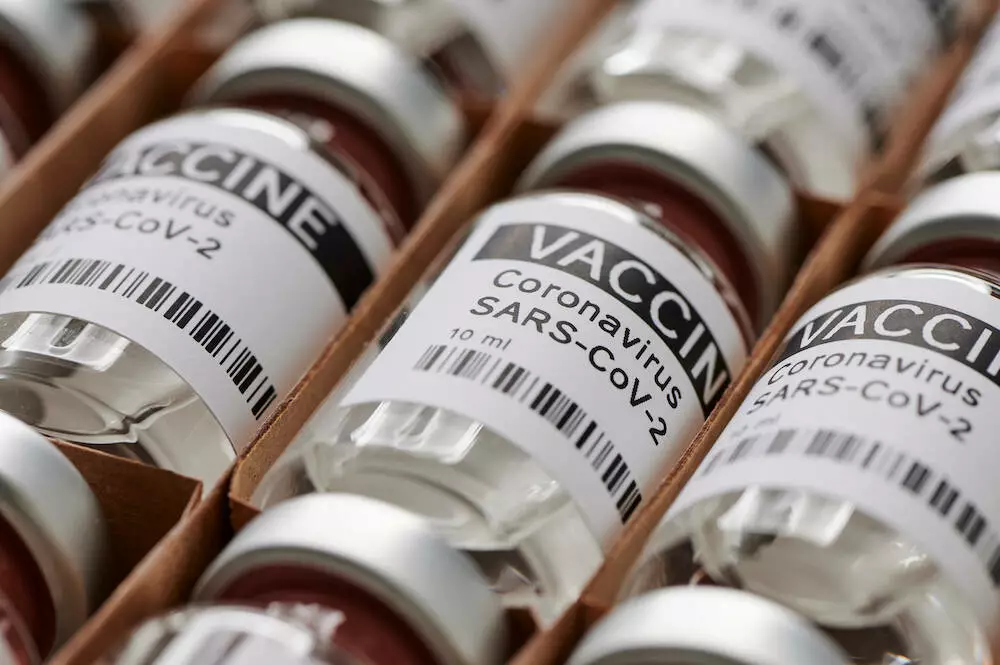On behalf of MIT Blueprint Labs, we want to extend a heartfelt thanks for your support this year. Despite our physical distance from one another, the Blueprint team collaborated to produce timely, informative research. As we look ahead to the new year, we will continue to investigate the most pressing issues in education, healthcare and the workforce, including new challenges created by the Covid-19 pandemic.
In 2020, our faculty and affiliates released 14 groundbreaking research papers on education, healthcare, and inequalities. You can find a few highlights below.
Governments and foundations spend enormous amounts on college aid every year, but it is unclear whether this expenditure improves college enrollment and graduation rates. To better understand how aid can affect college outcomes, the Blueprint team evaluated The Susan Thompson Buffett Foundation’s scholarship program, which covers the full cost of tuition for selected Nebraska state and local college students. The program led to large gains in bachelor’s degree completion, and these gains are largest for disadvantaged groups. You can learn more from the Evaluating College Support website and New York Times coverage.
As Covid-19 continues to spread, policymakers are faced with an important question: how can scarce medical resources – such as ventilators or vaccines – be allocated in an equitable way? Using the principles of market design theory, Parag Pathak and co-authors produced new research showing how a reserve system can fairly set aside limited medical resources for vulnerable groups such as healthcare workers or disadvantaged minorities. Read how reserve systems can be used during the pandemic on the Covid-19 Reserve System website.
We expanded our outreach efforts with events focused on Covid-19 research.
In December, we co-hosted the Vaccine Allocation and Social Justice virtual event in partnership with several other leading academic institutions. The two-day convening brought speakers from around the world to discuss how to fairly allocate vaccines to vulnerable groups. Notable presenters included Atul Gawande (Ariadne Labs), Michelle Williams (Harvard T.H. Chan School of Public Health), Saad Omer (World Health Organization, Strategic Advisory Group of Experts), Mary Ann Cooney (Association of State and Territorial Health Officials, ASTHO), and others. A full agenda and session recordings are available on the website.
Save the date for our upcoming conference, Covid-19 Challenges and Opportunities in K-12 Education, which will highlight emerging, credible research about the impact of the pandemic on districts, schools, and students. The online event will take place on February 11 and 12th and will feature Rhode Island Governor Gina Raimondo and Education Commissioner Angelica Infante-Green. We will send formal invitations in the new year.
Thank you for your continued engagement with Blueprint’s work. Now more than ever we must work to shine a light on inequalities and seek out policy solutions that lessen them.
|
Josh Angrist |
Parag Pathak |
David Autor |
Please note: Prior to July 2021, Blueprint Labs was named the School Effectiveness and Inequality Initiative (SEII). Mentions of SEII have been edited to reflect our new name.
Abdulkadiroglu, Atila, Parag Pathak, Jonathan Schellenberg, and Christopher Walters. “Do Parents Value School Effectiveness?” American Economic Review, 110 (2020): 1502-1539.
Pathak, Parag Tayfun Sonmez, and Utku Unver. “Improving Ventilator Rationing Through Collaboration with Experts on Resource Allocation.” JAMA Network Open, 371 (2020).
Pathak, Parag, Umut Dur, and Utku Unver. “Explicit vs. Statistical Targeting in Affirmative Action: Theory and Evidence from Chicago’s Exam Schools.” Journal of Economic Theory, 187, (2020): 1-48.
Schmidt, Harald, Parag Pathak, Tayfun Sonmez, and Utku Unver. “Covid-19: How to Prioritize Worse-off Populations in Allocating Safe and Effective Vaccines.” British Medical Journal, 371, m3795 (2020): 1-4.
Terrier, Camille. “Boys Lag Behind: How Teacher’s Gender Biases Affect Student Achievement.” Economics of Education Review, (2020).
Angrist, Josh, David Autor, and Amanda Pallais. “Marginal Effects of Merit Aid for Low-Income Students.” Blueprint Discussion Paper #2020.06.
Arnold, David, Will Dobbie, and Peter Hull. “Measuring Racial Discrimination in Bail Decisions.” NBER Working Paper #26999.
Arnold, David, Will Dobbie, and Peter Hull. “Measuring Racial Discrimination in Algorithms.” NBER Working Paper #28222.
Autor, David, David Figlio, Krysztof Karbownik, Jeffrey Roth, Melanie Wasserman. “Males at the Tales: How Socioeconomic Status Shapes the Gender Gap.” Blueprint Discussion Paper #2020.05.
Combe, Julien, Oliver Tercieux, and Camille Terrier. “The Design of Teacher Assignment: Theory and Evidence.” Working Paper.
Felix, Mayara. “Charter Schools and Suspensions: Evidence from Massachusetts Chapter 222.” Blueprint Discussion Paper #2020.10.
Mountjoy, Jack, and Brent Hickman. “The Returns to College(s): Estimating Value-Added and Match Effects in Higher Education.” Working Paper.
Mountjoy, Jack, and Brent Hickman. “Improving Educational Pathways to Social Mobility: Evidence from Norway’s ‘Reform 94’.” Forthcoming, Journal of Labor Economics.
Schmidt, Harald, Utku Unver, Michelle Williams, Parag Pathak, Tayfun Sonmez, Lawrence Gostin. “What prioritizing worse-off minority groups for COVID-19 vaccines means quantitatively: practical, legal, and ethical implications.” Blueprint Discussion Paper #2020.11.

David Autor
Heinz 25th Special Recognition Award
David received the Heinz award for his research on labor, trade, and economic security and “for transforming our understanding of how globalization and technological change are impacting jobs and earning prospects for American workers.”
Vaccine Allocation and Social Justice
December 4 and 9, 2020
Covid-19 doesn’t discriminate, but some populations are hit harder by the disease or more vulnerable to infection. As vaccines become available, government officials will have to decide whether and how to prioritize these disadvantaged groups. To assist in these efforts, MIT Blueprint Labs and MIT Economics partnered with seven other leading academic institutions to host a thoughtful dialogue on how to ensure the equitable distribution of vaccines. Vaccine Allocation and Social Justice featured prominent health researchers and policymakers from around the globe, including Blueprint’s Parag Pathak. In his presentation, Parag and co-authors demonstrated the consequences of using different measures of disadvantage – such as the Social Vulnerability Index – in allocation strategies.
Covid-19 Challenges and Opportunities in K-12 Education
February 11-12, 2020
Depending on where you live, school may look very different or not different at all. The Covid-19 pandemic not only revealed the myriad responses by districts and states, but also acted as a reminder of persistent education inequities. In February, MIT Blueprint Labs will convene education researchers, practitioners, and government officials to discuss the varying responses and evidence around learning during the pandemic. Notable keynotes include Rhode Island Governor Gina Raimondo and Education Commissioner Angelica Infante-Green. We will send out formal invitations in the new year.

Allied Social Science Associations Conference
Blueprint Labs Presentation Schedule | January 2021 | Virtual
AI and Jobs: Evidence from Online Vacancies
Daron Acemoglu, David Autor, Jonathan Hazell, and Pascual Restrepo
10:00-10:30am EST
Army Service in the All-Volunteer Era
Kyle Greenberg, Matthew Gudgeon, Adam Isen, Corbin Miller, and Richard Patterson
11:20am-12:00pm EST
Reversing Reserves
Parag Pathak, Alex Rees-Jones, Tayfun Sonmez
12:45-1:15pm EST
Machine Learning is a Natural Experiment
Yusuke Narita and Kohei Yata
12:15-12:40pm EST
Measuring Racial Discrimination in Bail Decisions
David Arnold, Peter Hull, and Will Dobbie
1:30-1:55pm EST
Meritocracy and Discontent: Long-run Effects of Repeated School Admission Reforms
Yusuke Narita, Mari Tanaka, Chiaki Moriguchi
5:15-5:45pm EST
What’s the Holdup? Productivity Bottlenecks and the Productivity Puzzle
Daron Acemoglu, David Autor, and Christina Patterson
5:15-5:45pm EST
Improving Educational Pathways to Social Mobility: Evidence from Norway’s “Reform 94”
Marianne Bertrand, Magne Mogstad, Jack Mountjoy
10:25-10:50am EST
A Market Design Solution to Unfair Distribution of Teachers in Schools
Julien Combe, Umut Dur, Oliver Tercieux, Camille Terrier, Utku Unver
12:45-1:15pm EST
Adaptive Correspondence Experiments
Hadar Avivi, Patrick Kline, Evan Rose, and Christopher Walters
4:25-5:05pm EST
Measuring Racial Discrimination in Algorithms
David Arnold, Peter Hull, and Will Dobbie
5:05-5:45pm EST
Subscribe for Updates